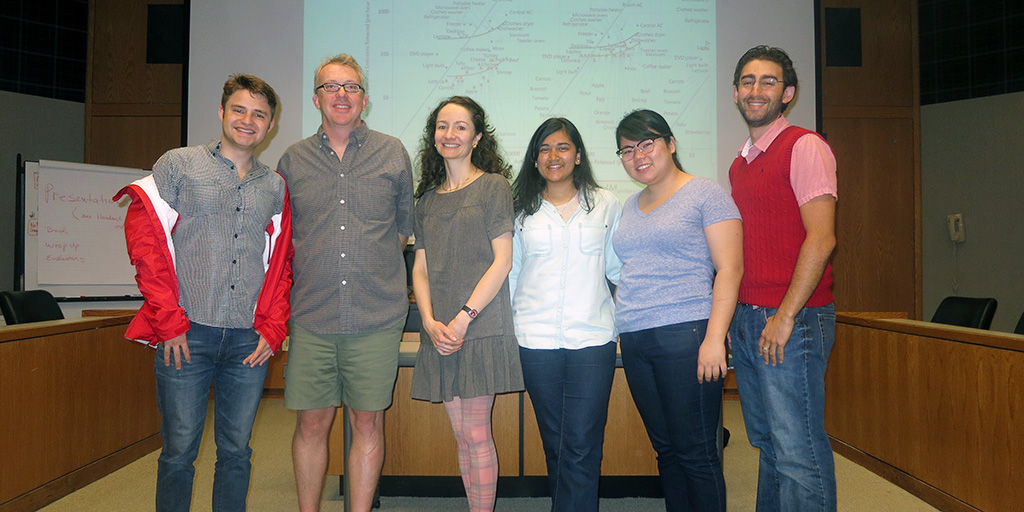How Our Food Choices Impact the Environment
January 2, 2019
After researching the correlation between food production, behavioral strategy and environmental harm reduction, a Bass Connections team published its research findings in Nature Climate Change.

Four members of a Bass Connections project team that began in 2013 are the authors of a new paper, “Consumers underestimate the emissions associated with food but are aided by labels,” published in Nature Climate Change on December 17. Adrian Camilleri, Shajuti Hossain ’15, Rick Larrick and Dalia Patino-Echeverri began collaborating on this topic through the Bass Connections project Goals and Collective Efficacy: Routes to Energy Saving.
Back in 2013, Bass Connections was a brand-new initiative at Duke University to “facilitate linkages across educational levels, across academic units on campus, and between campus and society,” Camilleri wrote in a “behind the paper” article. “I saw it as a great opportunity to extend my postdoc while starting several exciting new interdisciplinary projects.” He completed a postdoctoral fellowship in marketing and organizational behavior, and is now at the University of Technology Sydney.

“I helped form a team that included faculty members in the Fuqua School of Business [Larrick] and the Nicolas School of the Environment [Patino-Echeverri],” Camilleri wrote. “We then recruited three students who were studying Environmental Management [Gabriel Goffman], Economics and Public Policy [Hossain], and Psychology [Marie Komori].”
Initially, the team took a broad approach to energy conservation and examined the way behavioral science considerations affected energy consumption decisions. However, as the students and faculty members learned more about each other’s passions and backgrounds, a more specific problem emerged.
“The idea of food came up,” Camilleri wrote. “This is one of those rare cases in which we can reconstruct where an idea came from because we took detailed meeting minutes.”
As a result of such meetings, student formed specific research paths within their own disciplines that became integral parts of the larger project. Hossain examined the degree to which people underestimate the energy consumed and greenhouse gases emitted in the consumption of food. The research direction that Hossain began to explore in 2014 became the basis for the paper that she would later write together with Camilleri, Larrick and Patino-Echeverri. After graduating in 2015, Hossain went on to receive her JD from Duke Law in 2018.
An initiative such as Bass Connections, which integrates different disciplinary approaches around a practical problem, can spark important research that may not otherwise emerge. –Adrian Camilleri
In addition to Camilleri's “behind-the-paper” article, he published a piece with Patino-Echeverri and Larrick called “What’s your beef? How ‘carbon labels’ can steer us towards environmentally friendly food choices.” Larrick summarized the issue in a short video, and Michael P. Vandenbergh and Kristian Steensen Nielsen published a commentary on the paper in Nature Climate Change.
Learn More
- Review publications and other outputs from Bass Connections project teams.
- Come to the Bass Connections Fair on January 22.
- Explore project teams and courses in the Energy & Environment theme.
